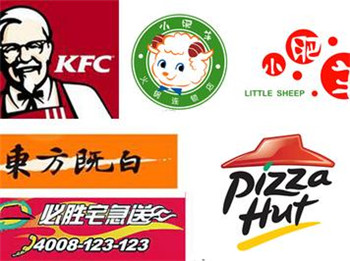
First comes the gratification, then the remorse. But does the cycle familiar to Yum Brands customers also apply to its investors?
先是满足感,然后是懊悔心。这种对于百胜(Yum Brands)顾客来说非常熟悉的循环,也适用于其投资者吗?
The owner of KFC has decided to split off its troubled China business, leaving two separately traded companies. The logical and potentially rewarding move comes with the chance of a less savory aftertaste.
肯德基(KFC)的母公司决定剥离陷入困境的中国业务,分成两个独立上市的公司。该公司做出这个合理且可能有回报的举动时,可能会带来不那么美妙的回味。
Yum will split off its China unit entirely, according to a person familiar with the situation, listing it wherever it garners the most interest from investors. While that is what the activist investor Keith Meister wanted even before he was added to Yum’s board last week, it’s also a no-brainer. Yum’s own-and-operate model in China jars with its almost entirely franchise-based business elsewhere.
据一位知情人士透露,百胜将彻底剥离中国业务,在能吸引最多投资者兴趣的地方上市。虽然上周才加入百胜董事会的维权投资者基思·梅斯特尔(Keith Meister)早就希望这么做,但这可以说是一个显而易见的选择。百胜在中国施行的“拥有并经营”模式与其他地方几乎完全以特许经营为基础的业务不协调。
After the split, the two parts will have very different flavors. Suppose the China division can increase its number of stores by half, to 10,000, and create $1.4 million a year in revenue from each one, as it did before food scares in China last year hurt its sales. A Reuters Breakingviews analysis suggests that the unit could be worth $27 billion on a debt-free basis, three-quarters of the whole Yum enterprise value.
拆分之后,这两家公司将有不同的特色。预计中国公司能够店铺数增加一半,达到1万家,每家每年创造140万美元的收入,达到去年中国食品恐慌影响其销售额之前的水平。路透热点透视(Breakinviews)的一篇分析文章显示,中国公司在无债的基础上可能价值270亿美元,相当于整个百胜集团市值的四分之三。
The more mature Western-world business, meanwhile, could be slathered in debt. Yum, the owner of the KFC and Pizza Hut brands, might be able to extract a 3 percent license fee from its expanded China affiliate, giving it $420 million a year in mostly stable income. Add that to last year’s non-Chinese earnings before interest, taxes, depreciation and amortization, or Ebitda, of $1.1 billion, assume there’s room for borrowing worth three times Ebitda, and there is scope for a one-time debt-funded payout to investors of more than $4 billion.
与此同时,比较成熟的西方国家业务可能大量举债。百胜——肯德基和必胜客(Pizza Hut)的母公司——或许能从扩张后的中国公司收取3%的许可证费用,每年获得基本上稳定的4.2亿美元收入。加上这部分收入后,去年非中国业务的Ebitda(利息、税、折旧、摊销前盈利收入)达到11亿美元,假设还有可以获得三倍Ebitda的借款的空间,就有一次性向投资者举债回报逾40亿美元的余地。
Despite this, the $32 billion Yum stock rose just 4 percent after the split was announced on Tuesday. That may be because any separation could be at least a year away. It may also reflect the China risk that will remain with the Western business. The American unit will still depend on fees from China — increasingly so if growth plans there pan out. Yet it will not be able to control them. Yum’s spinoff is sensible, but not a magic recipe.
尽管如此,周二宣布拆分计划后,市值320亿美元的百胜集团的股价仅仅上涨了4%。这可能是因为任何拆分计划需要至少一年的时间才能完成。这可能也反映了中国风险将会继续存在于西方业务中。美国公司仍将依赖来自中国的许可费——如果增长计划在中国取得成功,那就会愈发依赖。而美国公司将无法控制它们。百胜集团的拆分举措非常明智,但不是一份魔力食谱。












